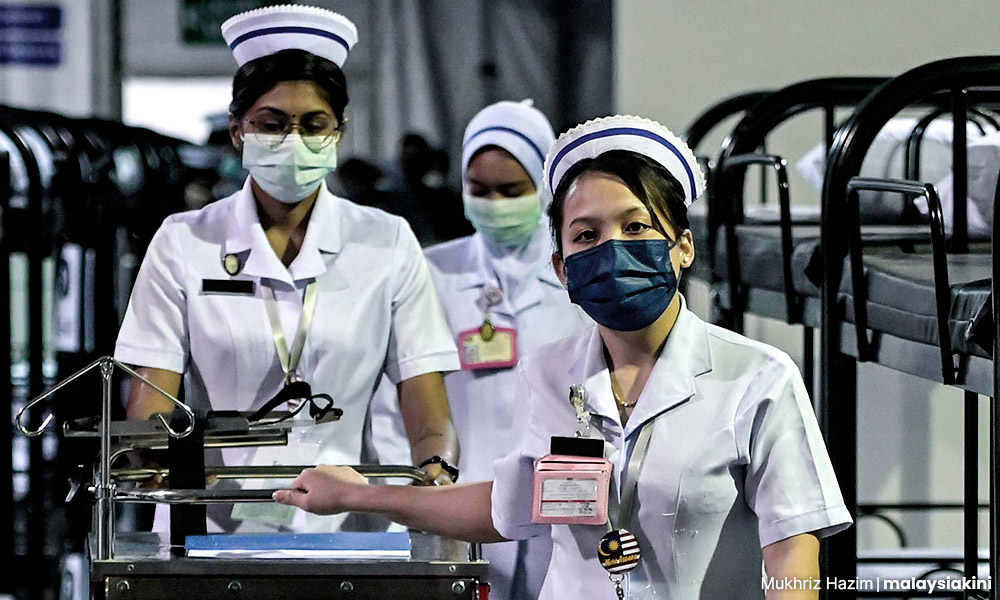LETTER | Burnout among Malaysian nurses has reached alarming levels, as underscored by recent studies.
The Covid-19 pandemic exacerbated this issue, with a staggering 61.2 percent of nurses in a recent survey reporting severe burnout symptoms like fatigue and recurring physical illness.
Those experiencing burnout often show signs of emotional distress, psychosomatic issues, attitude shifts and behavioural concerns. This results in increased sick leave, reduced job efficiency and heightened absenteeism.
Several intertwined factors contribute to this burnout. Emotionally, nurses grapple with the strain of caring for critically ill patients.
Physically, they endure long hours and the rigours of their intensive patient interactions. These pressures are compounded by heavy workloads, severe staff shortages, imbalanced nurse-to-patient ratios and a perceived lack of managerial support.
A common sentiment among nurses is that their relentless dedication and contributions remain overlooked, leading to feelings of frustration, dissatisfaction and demotivation.

Further, the limited avenues for career advancement and professional growth intensify these sentiments.
Shift work, particularly night shifts and unpredictable after-hours duties, is a significant factor in burnout. The human body is inherently designed to be active during the day and rest at night.
However, due to the vital roles nurses play, avoiding night shifts or irregular duties is often impossible.
Drawing from our experience as practising nurses, we believe solutions lie at both individual and institutional levels.
Nurses should be empowered with strategies to handle stress, such as relaxation techniques, resilience-building and effective time management.
Simultaneously, we call upon healthcare institutions and policymakers to prioritise mental health support. This can be realised through regular mental health assessments, nurse-specific counselling services and empowering nurses with flexibility in their work schedules.
Moreover, continuous training, growth opportunities and platforms for peer discussion can make nurses feel valued and integrated.
Intervention needed
The Health White Paper 2023 has underscored the mental health challenges in Malaysia. To realise the aspirations of the Sustainable Development Goal (SDG 3), which promotes good health and well-being for all age groups, substantial advancements are essential.
Hence, the escalating issue of nurse burnout in Malaysia demands immediate and comprehensive intervention. As a society, we must extend unwavering support to these frontline heroes, ensuring they feel cherished and cared for.
Their well-being is paramount for them to continue offering the unparalleled care upon which we all rely.
Authors are from Department of Nursing, School of Medical and Life Sciences, Sunway University.
The views expressed here are those of the author/contributor and do not necessarily represent the views of Malaysiakini.





